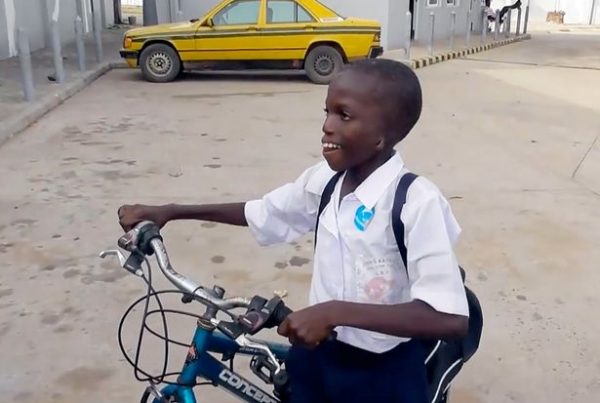
A Gambian boy born without ears has been refused entry into Britain for a life-changing operation that would allow him to hear properly for the first time.
The government won’t allow Mohammed Cham into the country after his application for a temporary visa was denied.
The eight-year-old was due to fly from his native Gambia to Scotland next week to have an implant inserted into his ear during surgery.
The charity Project Gambia People Feeding People had arranged the trip and is now urging the government to reconsider its decision, the Mirror reports.
Mohammed, also known as Alieu, was left in tears after being told the British Embassy in Gambia had blocked his visa application.
The charity, which provides meals and hearing aids at St John’s School for the Deaf in the Gambian village Serekunda, spent 16 months planning the trip.
They had arranged for NHS Lanarkshire ENT specialist surgeon Arunachalam Iyer to carry out the surgery at Monklands Hospital in Airdrie.
Project chairman Frank Devine said: “We’re desperate to help this poor wee soul but we’re being stopped by people playing God.
Frank insists the charity followed every procedure on the visa application and were stunned to discover it had been knocked back.
Mohammed, who was born deaf, was due to travel to Scotland with his deputy head teacher Mary Ann Allen and Project Gambia volunteer Alasan Canara, with all three set to be surprise guests of honour at the charity’s summer ball.
They were due to stay with Frank’s project partner, Paul Lafferty, at his home in Bellshill during their visit. Frank, 57, from Mossend, said: “Everything was in place and we never thought there would be any issues with visas.
“We followed every procedure to the letter and spent a month in Gambia working on the application. They knocked us back because we never told them the name of the surgeon and because we didn’t mention the hospital that the operation was to be performed in – but we were never asked to provide that information.
“Why refuse visa applications with stipulations we as a charity were never asked to adhere to? We answered every question asked of us. These questions were never posed and if they were, we would have answered them. To refuse the visa application on those grounds is a joke. We just wanted to help give a child the chance to hear again but it’s being made so difficult. We promised wee Alieu we would get him sorted and we keep our promises – always.”
Dr Iyer was due to operate on the youngster in the coming weeks and planned to insert an implant which would restore his hearing.
He said: “We have put a lot of effort into confirming his suitability for a hearing aid as he has no ear canal. The next step would be a bone anchored hearing aid and that’s what I was planning to do when he arrived in Scotland. I am very sad and frustrated to hear that he won’t be able to make the trip as a lot of people have put in effort.”
Frank, along with Paul, Charlie Docherty and Lynne Hamilton Gillies, set up the project seven years ago to donate school uniforms, bags, IT equipment, sportswear, footwear and clothing to children living in poor conditions.
Mohammed came to their attention when he arrived at the school and Frank noticed how self-conscious the youngster was.
He said: “He’s grown up in poverty and because he has no ears, he’s shunned by people in the community. I noticed straight away that he has no confidence and he would try to hide away. He knows sign language but coming to Scotland and having an implant fitted would give him the chance to hear properly. In the future, we’d like to look at creating ears for him using cartilage and we’re speaking to doctors about it. His family can’t afford medical treatment. He’s a character and deserves the best chance at life. We are all heartbroken his visa has been refused. We put so much planning and effort into raising funds to bring him over here and now it’s all been shattered.”
The Home Office said it is not normally possible to come to the UK as a visitor to access NHS services.
A spokesperson said: “Applications for an individual to visit the UK for medical treatment must demonstrate that private healthcare arrangements are in place ready for their arrival. In addition, they must include a letter from a doctor or consultant detailing the medical condition, estimated cost and likely duration of the treatment and where it will be delivered.
“Where that is not provided, applications will be refused.”
Courtesy of Mirror Newspaper, UK

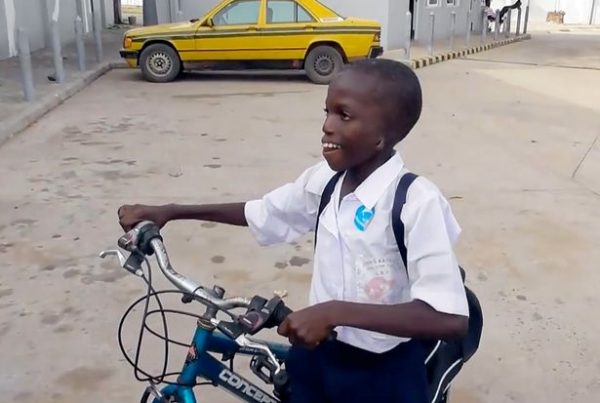
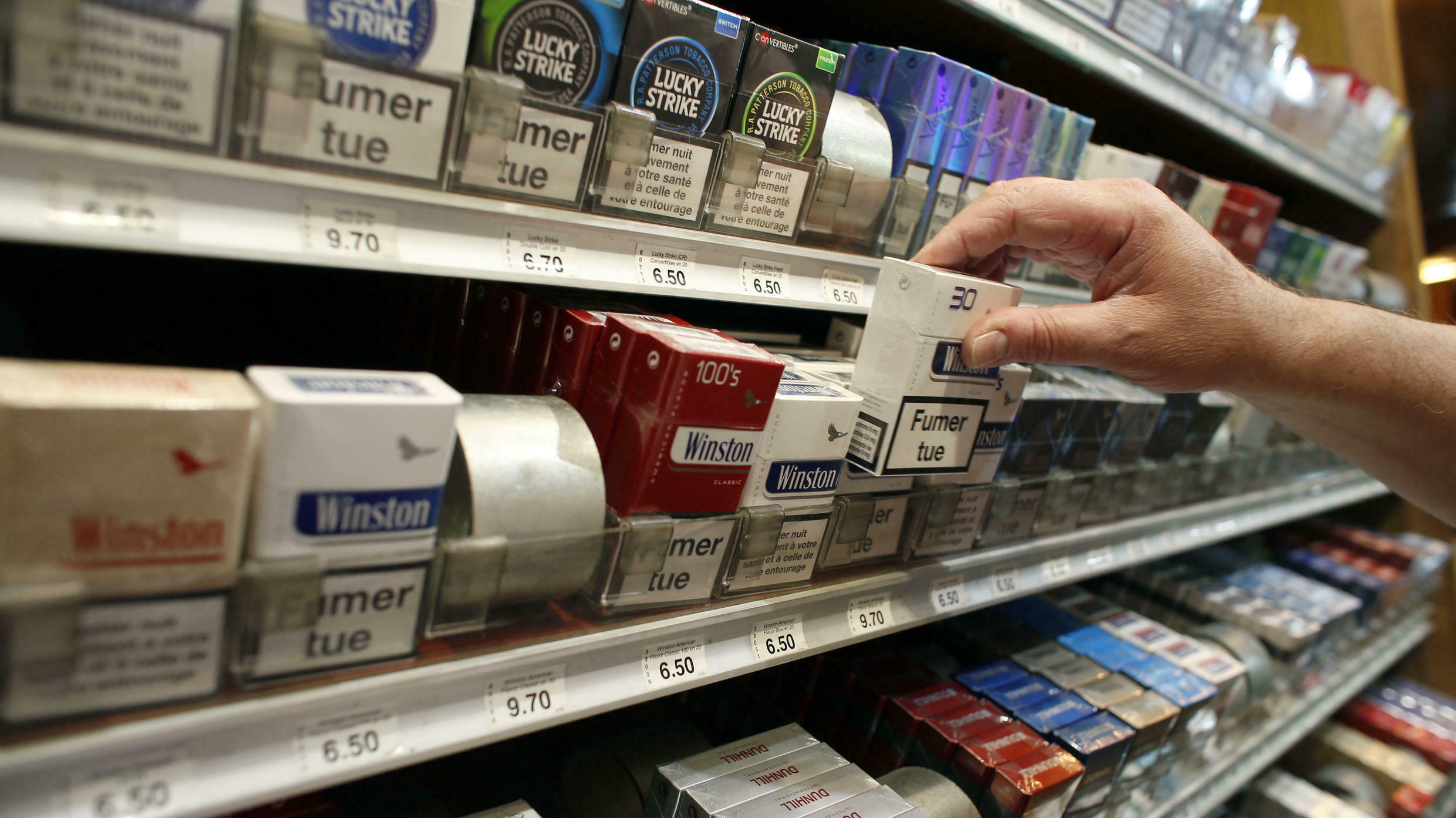
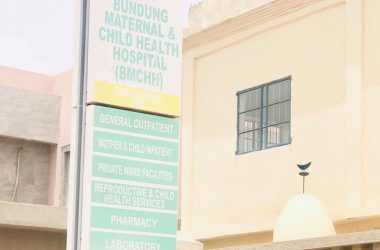
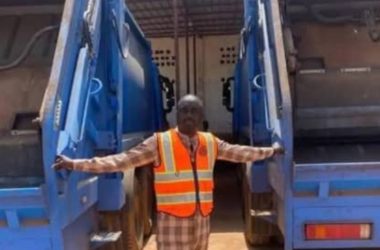

Where is the Commonwealth, The “British Empire of Subjugated Nations” to salvage this poor boy from hearing impairment?
Babu there are 53 countries and over 2.3B people in The Commonwealth of Nations. Several of these countries are quite capable of doing the simple surgical repair needed by this child. Somehow, somewhere someone made a decision to send him to UK for the procedure and he was denied a visa. Consider this.
1. Some entity already agreed to pay for the procedure in UK.
2. Some entity already agreed to pay for his travel, accommodation and “welfare” in the UK.
Now lets think about this question.
1. Who or What agreed to foot the bill for #1 above?
It is obviously not likely to members of The “British Subjugated Nations”. It is more likely to be an entity affiliated with UK. Please don’t talk about “they stole our money” That’s is old.
This is where I am going with this.
We, ALL of us, the entire country should be ashamed of ourselves to be asking for this help.
So why do we continue to beg and act like Beggars, when we clearly have a choice. Take small Gambia, there are several Gambian plastic and facial reconstructive surgeons that can fix this boy’s ears and improve the quality of his life. Gambia could have spent the last 22 years building our healthcare system so that this surgery and other types of care are available locally, but did we. No. Instead of using our energy and resources to advance and develop our society, we spend valuable time engaging in emotional politics, tribalism and self defeatist white hate agenda called “pan-Africanism”. Yes Babu, you ask the question and you are very guilty by association. Your mentor Yahya was there for 22 years. How did he and his enablers improve our healthcare system. He did not, made things worse. He destroyed what he found when he assumed power. Moving forward I say this. Take responsibility for the failed system and build it from grounds up, on your own with help from your brothers and sisters in the diaspora. That is if you are serious.
Still on the topic of self reliance and self responsibility. You are a math Professor/farmer. On this forum there are very smart people, I think. We have spent time talking about Mai Fatty, Barrow, police brutality etc. Very important subjects indeed. But you know what is more important, and no one is talking about or care to address.
1. The coming raining season. How are we planning to help the farmers improve crop yield, fertilizer, tools, harvesting, storage and transportation so they can feed our nation and sell to our neighbors.
2. School will soon start. How will our poor mother’s pay school fees, buy shoes and uniforms and feed the children.
But no, we interested to know why Barrow sacked Fatty. Seriously how will that information improve the lives of the average Gambian. The average woman in the market does not care about political intrigue and deception of the ruling class.
Point is let us stop deceiving ourselves. If our goal is to build a better Gambia. Do it honestly with humility, work and science.
Dr Sarr: Please print and pass this onto OJ when you meet him in Banjul. Bless.
Many of us have offered such developmental ideas (and I was in Jammeh’s Jail the day my Daily Observer headline “AGRICULTURAL BATTALION FOR 2009” appeared at the newstands). Dida Halake once wrote: “SWEET CASSAVA. This plant provides lots of carbohydrates and is drought resistant. IF EAST AFRICA HAD PLANTED CASSAVA EVERYWHERE THEY WOULD NOT BE STARVING TODAY. Cassava feeds West Africa. Let us plant Cassava everywhere – even on the beach! That would be my agricultural policy”! If Jammeh & OJ had followed this policy, we might avoid the current FAJIKUNDA BREAD STRIFE in 2018 and years to come.
…………………………………………………………………………………..
“Dear OJ, Give Us This Day Our Daily CASSAVA Bread!”
Sambagate.com — by editor — April 8, 2017
Here are the Cassava stories from the “Dear OJ” piece:-
Cassava Bread: Skyrocketing Wheat Price Rekindles Debate On Cassava Bread Initiative
LAGOS GUARDIAN, 27 Feb 2016
THE price of wheat has gone up and is affecting the price of bread in many parts of the country, where the staple food is going out of reach of the common man. The wheat price increase has been attributed to the free fall of the naira against the dollar, as the wheat component of bread is imported.
But some Nigerians believe the country ought to have been less dependent on wheat, if the Cassava bread initiative had been carefully implemented. The increasing price of bread is becoming unbearable in parts of the country according to reports.
The Public Relations Officer of the association, Kabiru Hassan Abdullahi, said although bakers in the state are already using cassava as a component of bread, there is need to increase its percentage from the current five. In the alternative, he said there is need for full adoption of Cassava initiative since it can be produced locally.
Nigeria is the largest producer of cassava in the world and so, we have comparative advantage over every other country. Why can’t we use what we have? If you look at this year’s budget for instance, you cannot find anything on cassava policy
“We need to have a situation, where we can have like 10 or 15 percent of cassava component in bread baking for a complete departure from whole wheat bread. This paradigm shift can actually help government earn more revenue,” he said.
The president, National Association of Nigeria Traders, Barrister Ken Ukaoha, who reacted to the rising cost of wheat in Abuja, said the challenges facing the bread sub-sector would not bode well for the country, if nothing were done to urgently arrest the situation, especially as the new administration made no reference to the cassava policy in the 2016 appropriation.
“The bread sub-sector is faced with very serious and daunting challenges. The sharp increase in forex is a big issue because more than 90 percent of the bread produced in this country is made from wheat, which is imported. The cassava bread initiative is a policy wrapped around local content in terms of the percentage of wheat and cassava flours that should be combined to make bread.
“We noticed back then that with the 20 percent cassava and 80 percent wheat, the bread was really better and more than 87 percent of Nigerians were actually asking for it. We discovered that 67 percent of Nigerians were sure that cassava bread was better than wheat bread,” he said.
On the claims in some quarters that millers do not want to accept cassava processed by local processors, Ukaoha said there are some varieties of cassava that actually reduce the shelf life of bread, such that bread baked with them get bad within two days.
He, however, said there are other varieties that are good and had been proven to be best in making cassava flour. “So, we agreed then that we should identify the ones that are good and look at their usefulness. And that was why we arrived at the varieties that were used then. Since the last administration, nothing had been heard about the cassava initiative and nothing is on ground to carry it on.
“Nigeria is the largest producer of cassava in the world and so, we have comparative advantage over every other country. Why can’t we use what we have? If you look at this year’s budget for instance, you cannot find anything on cassava policy. You can’t find any mention of cassava initiative, yet we complain that lots of forex is being wasted on unnecessary import. How does government intend to drive the policy, when no reference was made to it in the budget? Are we saying that the initiative has died with the last administration? It means we are back to square one, as far as I’m concerned.”
Then secretary of National Cassava Processors and Marketers Association, Mr. Femi Salami, told The Guardian that the seeming failure of the cassava bread initiative is indicative of the fact that government and its agencies have failed to fulfill their part of the pact entered with stakeholders in the bread business.
He said processors of high quality cassava flour, which is meant to be added to wheat at the ratio of 20:80 percent by millers, are not getting the assistance they were promised.
“Countries all over the world have one thing or the other to do with wheat. The sad thing is that the wheat being imported in Nigeria and other developing countries is third grade. Just like what happens with the importation of rice, Nigeria takes whatever it gets because we cannot look inward and make things work here.
“By virtue of the imported low quality wheat, there is need to produce composite flour that would boost its nutritional value, hence the introduction of high quality cassava flour. It is not only cassava that can be used for this purpose, we can also use yam, rice, potatoes and such carbohydrates, but because Nigeria has comparative advantage in cassava, that was why we settled for it.
“The cassava initiative launched in 2013 was based on four things: all cassava flour will be picked by flour mills; the price will always be at a guaranteed level and government will subsidise it; that we would be growing cassava specifically targeted at producing high quality cassava flour that would be used in the production of bread.
He said HoneyWell and Golden Penny, which are the major players in the industry, are currently adding 10 percent of high quality cassava flour to wheat and have advised bakers to add the remaining 10 percent to make the added quantity of 20 percent.
He regretted that the bakers couldn’t do that, as they lacked proper equipment to enhance their product.
He explained that the composite flour with 20 percent high quality cassava yields better output and guarantees profitability apart from its nutritional value.
“The initiative came to stay, but it is unfortunate that we are not even sure what the cassava component is in wheat for now. If the improver is there, it will be more profitable than using the whole wheat flour because whole wheat flour is N10, 500, but the multipurpose flour with 10 percent inclusion of cassava goes for N7, 800.
“The yield is not the same thing too. For whole wheat, you cut 90 grams and get 60 loaves but the composite range yields 68 loaves of 90 grams. That is why we are saying cassava bread is a type of national development and if Federal Government knows that, they should finance the policy well. It will help our economy and reduce unemployment, especially now that Nigerians have accepted bread as a staple food and not snacks as was the case before.”
He explained that the increase in bread price has become imperative because the price of flour has increased three times in 2016 alone, and that his association had to advise its members to increase their prices by 20 percent.
………………………………………………………………………………………
Why is Africa importing $35bn in food annually? – AfDB boss asks
President of the African Development Bank (AfDB), Akinwumi Adesina, says his outfit has achieved major milestones in this year alone but a lot more needed to be done to improve the continent’s economic fortunes.
Top of the AfDB’s proposals on how to ‘fast-track’ Africa’s economic potential is to improve the power sector and to turn to agriculture.
The AfDB believes that the continent must break the food import chain and aim for self-sufficiency in food production within the shortest possible time.
Africa’s annual food import bill of $35 billion, estimated to rise to $110 billion by 2025, weakens African economies, decimates its agriculture and exports jobs from the continent.
Adesina, a former Nigerian Agric Minister, was speaking at the Center for Global Development event held in Washington DC. He lamented the negative effects that huge food imports had on the continent.
‘‘Africa’s annual food import bill of $35 billion, estimated to rise to $110 billion by 2025, weakens African economies, decimates its agriculture and exports jobs from the continent. Africa’s annual food import bill of $35 billion is just about the same amount it needs to close its power deficit.
‘‘To rapidly support Africa to diversify its economies, and revive its rural areas, we have prioritized agriculture. We are taking action. The Bank has committed $24 billion towards agriculture in the next 10 years, with a sharp focus on food self-sufficiency and agricultural industrialization,’‘ he added.
Adesina also touched on recent drought and famine facing some countries (South Sudan, Somalia, Nigeria, Kenya, Ethiopia and Uganda). He said the situation called for swift action, as 20 million face food insecurity and severe malnutrition.
‘‘The Bank is taking action and is planning to deploy $1.1 billion, following Board approval, to address the crisis and ensure that drought does not lead to famine,’‘ he further disclosed.
……………………………………………………………………………………………..
EU, AAITG Hand-over D2M Garden Project to Kumbaney Community
April 21, 2017
The European Union (EU) in partnership with Action Aid International The Gambia (AAITG) on Wednesday handed over D2 million garden project to the community of Kumbaney in Niamina West District of the Central River Region south, at a ceremony held at the new garden premises.
Speaking at the handing over ceremony, the director of Action Aid International The Gambia, Omar Badjie commended EU for funding the Kumbaney women’s garden project to the tune of D2million.
According to Badjie, the project is part of the ‘EU project on Promoting Women’s Socio-economic Rights’ thus he called on the community of Kumbaney to work with Agricultural officials in the region for the successful implementation the project.
“We bring this garden project to your community with the hope that you will be able to manage the project and what you should do is to open an account for the project for its sustainability,” Badjie urged Kumbaney community.
He advised the community to take good care of the project so that other communities within the country could benefit from similar project.
Speaking earlier, the chief of Niamina West, Nganyi Dampha expressed his profound gratitude and appreciation to EU and AAITG for funding the project for the community of Kumbaney.
Chief Dampha urged Kumbaney community not to fail EU, AAITG and others because three communities were assessed for the project in the district but it was Kumbaney community who were lucky to get the project.
‘This is why I said don’t fail EU and others because you were given the project based on your commitment towards the improvement of your own livelihood,’ chief Dampha said.
He urged the community of Kumbaney, especially the women gardeners not to plant any tree inside the garden adding that the project is not meant for orchard purposes.
For his part, the project coordinator at AAITG, Pansaw Nyassi informed Kumbaney community that the garden project was measured at 2 hectares, with 2 new toilets, 8 concrete line wells and a waiting shed.
“This garden project can also occupy 780 standard beds. The project is all about empowering women and some women in other communities in Niamina West are involved in tie and dye while others are into poultry business,” Nyassi informed Kumbaney community.
Various speakers at the ceremony like: Landing Saidyleigh agric officer Sapu, Kebba Sawaneh alkalo Kumbaney village and Madam Boto Camara of Kumbaney both thanked EU and AAITG for their timely intervention.
Dida, I don’t even know what to say except to ask one question.
What are you doing in the UK?
Then again our country, indeed our society is a paradox an oxymoron. How do we expect to make development gains when some of our brightest are building and educating the children and future leaders of America and Europe when our Gambian youths need them most.
Dr, you wouldn’t be asking the question unless you have forgotten what is written on the back of the Gele-Gele in the last sentence of Ayi Kwei Armah’s great book!
Dr Isatou Sarr, my Dear Sis,
Every question has an answer, that’s why we table equational problems in Maths and find solutions. But look, even if the child is not soliciting UK visa on medical grounds, shouldn’t he apply for a visitor’s visa where all irrefutable guarantees are forwarded to satisfy the visa requirement? Isn’t he a Commonwealth citizen? I AM NOT ANYWAY!
Let’s suppose that the treatment could be done in Gambia but the family chose to send him abroad, to the UK. Is it offensive? Are you telling me that we don’t have the right to choose where to be treated and by whom? Well here in Holland you can undisputably exercise that right!
It might sound “old” TO MAKE MENTION OF THE British stealing of our money, but it stands to attest that we are not honorary members of the Commonwealth Club of Former Imperial British Subjugated Colonies. We are now bonafide members, paying our dues from our meagre resources with the belief that there is an adjunt BENEFIT now and in the future. Which benefits?
We’ll move forward, Sis. But we have rely on ourselves to do that. I swear! If Babu had relied on the PPP scholarships in the 70s for further education, I would have rot in the Gambia with my “highest level” of Gambian education, the “O” and “A” levels and the Yundum College Certificate. Self reliance and the urge to leap ahead propelled my decision to leave. I have NO regrets. Our country/ies/continent need to leap ahead not on rhetorics and dependency but on SELF RELIANCE. It is the same adage all over, but have we ever tried to implement it? Why was the American war of Independence from their own British brethren?
Would you deny that President Jammeh built the “chassis” of our health system? …The Bwiam, Farafenni, Bundung Serekunda centres from NOTHING he found and went further to upgrade Brikama, Bansang, Banjulunding, Basse, Yoro Bawol healthcentres.
It’s left to this bitty “coalition” administration to assemble the necessary amenities to make that “chassis” work.
Tell your Barrow man and his cohort of BANDITS, CORRUPT, TRIBALIST and CORRUPTIBLE elements to WORK for the Gambian people. And STOP addressing their personal immediate needs which is corroding the progress of our country.
Dr Sarr, Dida let’s stay on message regarding the need to adequately feed families in The Gambia as part of the broader goal to attain food self sufficiency.
That’s the only way that this government can be in business!!
And Babu, you’re starting to sound like a US republican. Keep the same aspersions out there day in day out in the hope that the message will stick some day.
At your level of accomplishment, the sour message of Yaya Jammeh or nothing else is fast losing the jive!
We may not be huge fans of this administration but we can’t be seen to be merely dissenters in the game for the sake of dissenting and also devoid of progressive ideas!
Let’s dwell on bold ideas that’ll resuscitate this ailing Gambia of ours.
Andy Pjalo,
**Adequate feeding of families in The Gambia as part of the broader goal to attain food self sufficiency**, let me add on to it, AND FOOD SECURITY, is not compatible with gunning down/arresting and jailing environmental activities; clear cases in point in the Kombo Faraba Banta and Kombo Gunjur incidences.
What did you, Dr Isatou Sarr, Bax, Tafel, Bajaw…………say/opine about those horrendous behaviours of your INCOMPETENT administration on our innocent civilians?
Which ENVIRONMENT are our people going to cultivate/use if the environment is polluted, contaminated, seized by national and multinational enterprises for personal gains?
The Gambian equation is simple, let them stop CORRUPT and CORRUPTIBLE acts and allow our rural or even urban farmers/gardeners access to all arable land. FULLSTOP.
Then all other factors could be employed/deployed: soft loans, machineries, fertilizers, seeds and seedlings, marketing avenues, savings, re-ploughing incomes/surpluses, cooperative organizations, seminars…….
As long as Omar Jallow (OJ) is there as Minister of Agriculture, we are NOT going to achieve anything in farming. He was CORRUPT. He is still CORRUPT. He was a TRIBALIST a WOMANIZER. He is still a TRIBALIST a WOMANIZER. Can such a person(with poor human calibre) be a productive/innovative/ creative leader for the farmers/gardeners?
What is the outcome of the expired fertilizer he sold in Senegal? He used all his influence within the corridors of the INEPT administration to thwart the CRIMINAL act. And he succeeded. Because your British Argos watchman in presidential clothing cannot decide. He’s NUMB and knows NOTHING!
Can we achieve food self sufficiency and security under such a poor and INCOMPETENT administration? NEVER!!!
The “capture of slaves” in Africa during the 16th to 19th centuries worked EXACTLY the same way that Africa’s resources are looted in Africa in the 20th & 21st centuries: ARM THE REBELS.
“We are interested in prolonging conflicts in Africa for the continent’s resources … Most African forces are set up to fail by foreign advisors … African wars and chaos are a means to get hands on the rich African resources … As long as there is conflict on the go, certain deals can be struck with governments … supporting armed groups or various rebel forces that actually destabilize the situation to avoid taxation … The anti-government groups are eagerly used as a means to replace governments that are not compliant enough with our wishes … foreign private military companies (PMCs) prolong a conflict or a war because the longer that goes on, the more money they make for themselves … foreign forces in Africa are here not to solve problems but to ensure that the problems continue … a stable and secure Africa appears to be in very few people’s interests”.
Who is speaking? See SambagateSnr (facebook).
Small arms proliferation is a major cause of conflict in Africa. Gun manufacturers are exclusively non inhabitants of the continent. Buyers and users of this destructive hardware are mostly Africans. Those that suffer most from the social economic and political effect and downward spiral are all African. History is valuable to the extent we learn from it, and use what we learn for corrective actions.
If slavery is selling of our brothers and sisters like livestock to the psychological detriment of our existence, small arms proliferation can be seen as having a similar effect on our success as a people.
It begs the question, here and now, how do we stop this dangerous trend, to stop this trend will clearly result in the stability and safety of our society and progress of our people. We cannot stop a thief from stealing, but we can decide not to receive stolen property.
If Africans refuse to buy guns to kill each other, then the gunmakers cannot make guns since no one will buy them. If Africans don’t buy guns, then there will be no conflict on the continent, at least in theory.
This is where I part ways with most. I personally don’t care what “they” do. I take responsibility for what I do, that will ultimately determine my destiny.
Nobody can start wars in Africa, nobody can destroy Africa except if we Africans allow it and do it ourselves.
Fast forward, you know the problem with Gambia. Why there is conflict, why there is killings, why there is no food, why our schools are in shambles, why our hospital have no medicines and equipment, why we have insecurity. I tell you Why.
Jawara
Jammeh
Barrow
Gambians – All of us.
Let me not say anything about the first three. I can’t control what they do. Let me talk about us. What we have control over. What we can do to make our country great.
Gambians can:
1. Take our voting rights seriously and elect good leaders.
2. We can speak out against all forms of injustice.
3. We can take personal responsibility for our own destiny and stop begging.
4. We can insist on a conflict free country by removing all vestiges of tribalism.
5. We can work hard to feed our nation and be self sufficient.
In conclusion, that is the only way to stop all forms of slavery and conflict in Africa.
God Bless The Gambia.